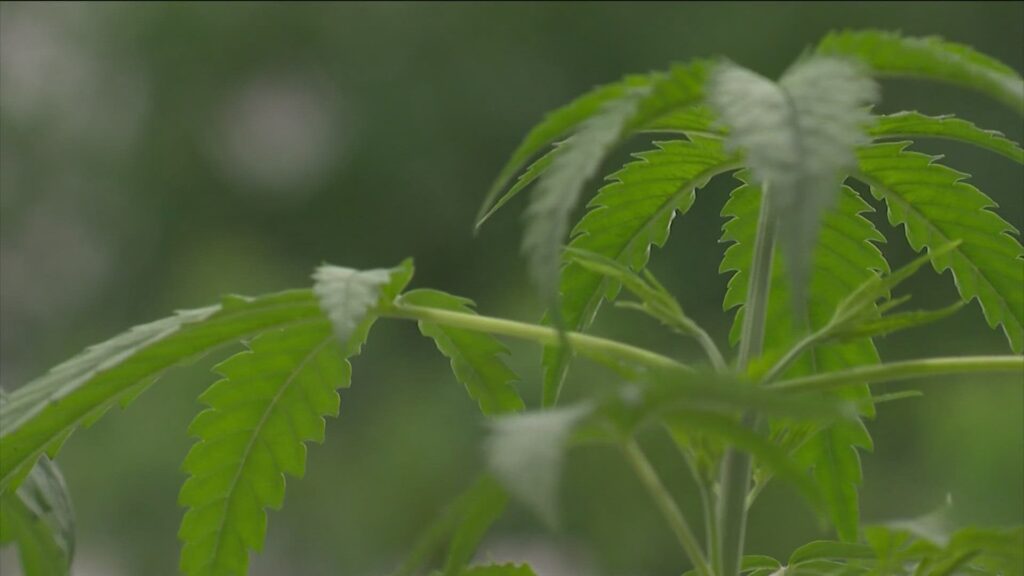AUSTIN, Texas — Lt. Gov. Dan Patrick says he wants to ban all consumable THC in Texas, with a plan to back a bill in the upcoming legislative session to ban all forms of the psychoactive substance.
THC, or tetrahydrocannabinol, is the predominant chemical in marijuana that gets people high. Generally speaking, it can be accessed in a number of forms, from the actual cannabis plant to THC-infused sodas.
But how much THC is even legal in Texas? While restrictions have loosened over the years, the sale of THC products is still limited in the Lone Star State.
Is marijuana legal in Texas?
No. While many states in the U.S. have legalized the use of recreational marijuana, Texas has not.
Does Texas have a medical marijuana program?
Yes. The Texas Department of Public Safety (DPS) administers the Compassionate Use Program (CUP) in Texas. Through the program, DPS operates an online registry – called the Compassionate Use Registry of Texas (CURT) – of qualified physicians who can prescribe low-THC cannabis to patients with specific medical conditions.
DPS also manages the licensing of organizations that dispense low-THC cannabis to patients in the CURT.
The CUP is limited to Texas patients with the following conditions:
Amyotrophic lateral sclerosis
Autism
Cancer
Epilepsy
Incurable neurodegenerative disease
Multiple sclerosis
Post-traumatic stress disorder
Seizure disorder
Spasticity
Medical conditions designated by the Health and Human Services Commission as authorizing treatment with low-THC cannabis as part of an approved research program
Patients are not allowed to grow their own cannabis. Only licensed cultivators can grow the plant and only for the production of low-THC cannabis, and patients must purchase products from a licensed dispensing organization.
Patrick has said Senate Bill 3, the bill that will aim to ban consumable THC, will not affect the CUP and will “in fact … ensure Texans needing to utilize the compassionate use program will have access to safe, doctor-prescribed medication.”
Are Delta 8 and 9 legal in Texas?
Yes, thanks to House Bill 1325, which passed in 2019. The law established the Texas Health and Safety Code Chapter 443, which allows for the commerce of consumable hemp products across the state that do not exceed 0.3% delta-9 THC.
That law has led to the sale of hemp-derived delta-8 THC, as well as products that contain delta-9 THC at 0.3% of the total weight, which can still be an intoxicating amount at a high ratio.
However, Patrick claims that since last year, “Thousands of stores selling hazardous THC products have popped up in communities across the state, and many sell products, including beverages, that have three to four times the THC content which might be found in marijuana purchased from a drug dealer.”
Following the creation of the Texas Health and Safety Code Chapter 443, many municipalities in Texas have chosen to decriminalize low-level marijuana possession.
What happens next with Patrick’s planned ban?
SB 3, which will be sponsored by State Sen. Charles Perry (R-Lubbock) in the upcoming legislative session, would ban consumable THC in Texas, excluding the Compassionate Use Program. Patrick says he believes the bill will have “broad bipartisan support” in the Senate and is encouraging the House to pass it as well.
An outright ban on delta-8 and other THC products in Texas, HB 2593, failed to pass during the 87th legislature session in 2021 after the provision was stricken from the legislation. Another bill that would have outlawed delta-8 THC, HB 3948, also died in the Legislature after an agreement could not be reached on amendments between the Texas House and Senate versions.
During committee testimony on that bill, the Texas Department of State Health Services (DSHS) said it believed “delta-8 remains on the Schedule 1 drug schedule in Texas,” raising questions if it was already illegal in the state.
The DSHS can take enforcement action against hemp licensees who sell consumable hemp products containing controlled substances; however, the DSHS does not regulate possession.
H/T: www.kvue.com



